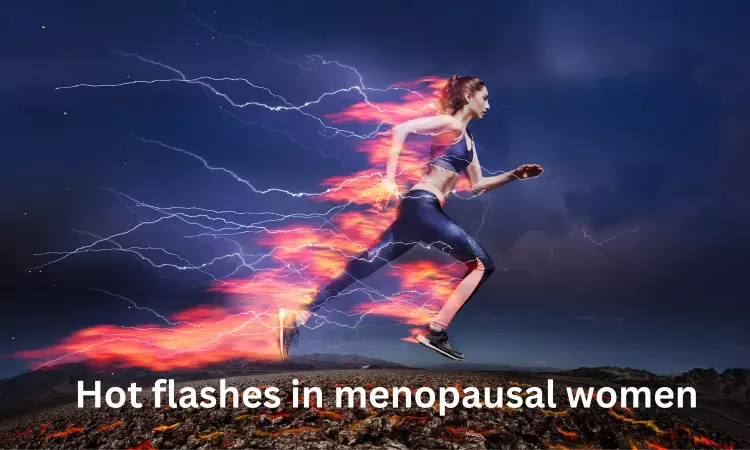- Home
- Medical news & Guidelines
- Anesthesiology
- Cardiology and CTVS
- Critical Care
- Dentistry
- Dermatology
- Diabetes and Endocrinology
- ENT
- Gastroenterology
- Medicine
- Nephrology
- Neurology
- Obstretics-Gynaecology
- Oncology
- Ophthalmology
- Orthopaedics
- Pediatrics-Neonatology
- Psychiatry
- Pulmonology
- Radiology
- Surgery
- Urology
- Laboratory Medicine
- Diet
- Nursing
- Paramedical
- Physiotherapy
- Health news
- Fact Check
- Bone Health Fact Check
- Brain Health Fact Check
- Cancer Related Fact Check
- Child Care Fact Check
- Dental and oral health fact check
- Diabetes and metabolic health fact check
- Diet and Nutrition Fact Check
- Eye and ENT Care Fact Check
- Fitness fact check
- Gut health fact check
- Heart health fact check
- Kidney health fact check
- Medical education fact check
- Men's health fact check
- Respiratory fact check
- Skin and hair care fact check
- Vaccine and Immunization fact check
- Women's health fact check
- AYUSH
- State News
- Andaman and Nicobar Islands
- Andhra Pradesh
- Arunachal Pradesh
- Assam
- Bihar
- Chandigarh
- Chattisgarh
- Dadra and Nagar Haveli
- Daman and Diu
- Delhi
- Goa
- Gujarat
- Haryana
- Himachal Pradesh
- Jammu & Kashmir
- Jharkhand
- Karnataka
- Kerala
- Ladakh
- Lakshadweep
- Madhya Pradesh
- Maharashtra
- Manipur
- Meghalaya
- Mizoram
- Nagaland
- Odisha
- Puducherry
- Punjab
- Rajasthan
- Sikkim
- Tamil Nadu
- Telangana
- Tripura
- Uttar Pradesh
- Uttrakhand
- West Bengal
- Medical Education
- Industry
Continuous use of transdermal nitroglycerin failed to improve hot flash frequency in menopausal women: JAMA

Hot flashes also known as vasomotor symptoms is one of the the most common symptoms of menopausal women, with more than two-thirds of women in Western nations reporting hot flashes during the menopausal transition. However its management is crucial and does uninterrupted transdermal nitroglycerin (NTG) therapy decrease the frequency and severity of menopause-related hot flashes?
A new study in JAMA Internal Medicine reveals that perimenopausal and postmenopausal women who experienced at least 7 hot flashes per day, hot flash frequency decreased by more than 40% over 12 weeks in the nitroglycerin and placebo groups. However early reductions in moderate-to-severe hot flash frequency or hot flash severity scores associated with nitroglycerin at 5 weeks did not persist at 12 weeks relative to placebo.
Researchers conducted a randomized, double-blinded, placebo-controlled clinical trial included perimenopausal or postmenopausal women reporting 7 or more hot flashes per day who were recruited from northern California by study personnel at a single academic center. Uninterrupted daily use of transdermal NTG (participant-directed dose titration from 0.2-0.6 mg/h) or identical placebo patches. Validated symptom diaries assessing changes in any hot flash frequency (primary outcome) and moderate-to-severe hot flash frequency over 5 and 12 weeks.
The key findings of the study are
• Among the 141 randomized participants (70 NTG [49.6%], 71 placebo), out of which 65 participants assigned to NTG (92.9%) and 69 assigned to placebo (97.2%) completed 12-week follow-up (P = .27).
• Over 5 weeks, the estimated change in any hot flash frequency associated with NTG vs placebo was −0.9 episodes per day, and change in moderate-to-severe hot flash frequency with NTG vs placebo was −1.1 episodes per day.
• At 12 weeks, treatment with NTG did not significantly decrease the frequency of any hot flashes (−0.1 episodes per day) or moderate-to-severe hot flashes (−0.5 episodes per day) relative to placebo.
• In analyses combining 5-week and 12-week data, no significant differences in change in the frequency of any hot flashes (−0.5 episodes per day) or moderate-to-severe hot flashes (−0.8 episodes per day) were detected with NTG vs placebo.
• At 1 week, 47 NTG (67.1%) and 4 placebo participants (5.6%) reported headache (P < .001), but only 1 participant in each group reported headache at 12 weeks.
Researchers concluded that “This randomized clinical trial found that continuous use of NTG did not result in sustained improvements in hot flash frequency or severity relative to placebo and was associated with more early but not persistent headache.”
Reference: Huang AJ, Cummings SR, Ganz P, et al. Efficacy of Continuous Transdermal Nitroglycerin for Treating Hot Flashes by Inducing Nitrate Cross-tolerance in Perimenopausal and Postmenopausal Women: A Randomized Clinical Trial. JAMA Intern Med. 2023;183(8):776–783. doi:10.1001/jamainternmed.2023.1977
MSc. Neuroscience
Niveditha Subramani a MSc. Neuroscience (Faculty of Medicine) graduate from University of Madras, Chennai. Ambitious in Neuro research having worked in motor diseases and neuron apoptosis is interested in more of new upcoming research and their advancement in field of medicine. She has an engrossed skill towards writing and her roles at Medical dialogue include Sr. Content writer. Her news covers new discoveries and updates in field of medicine. She can be reached at editorial@medicaldialogues.in
Dr Kamal Kant Kohli-MBBS, DTCD- a chest specialist with more than 30 years of practice and a flair for writing clinical articles, Dr Kamal Kant Kohli joined Medical Dialogues as a Chief Editor of Medical News. Besides writing articles, as an editor, he proofreads and verifies all the medical content published on Medical Dialogues including those coming from journals, studies,medical conferences,guidelines etc. Email: drkohli@medicaldialogues.in. Contact no. 011-43720751


